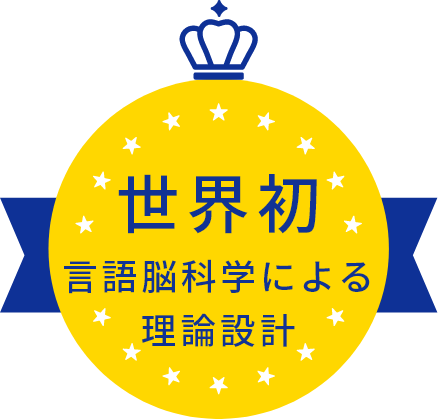
大人でも
英語は話せるようになる
言語脳を拡張する
トレーニング


大人でも英語が話せるようになるギャビーとは?
英語を自分の言葉として身につける
言語脳科学に基づくトレーニング
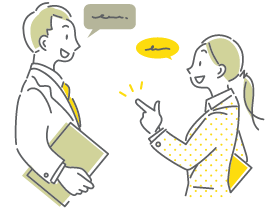
自然な英文を
素早く生成する
トレーニング

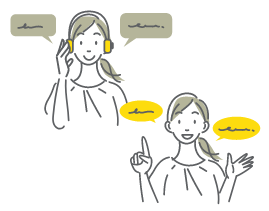
英語の音を
身につける
トレーニング
こんな悩みはありませんか?
色々試してきたけど、
英語が話せるようにならない
言いたいことを
とっさに英語で
表現できない
聞き取った
英語の理解が
追い付かない
オンライン英会話や
英会話スクールに
時間を費やした
単語や文法を
何年も
勉強してきた
TOEICの
スコアは高得点
なのに・・・

1つでも当てはまる方はギャビーに
お任せください
グローバルビジネスで活躍する人材を
育成するため
多くの企業に採用いただいてます。
受講生の実績

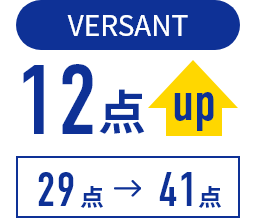
聞いた文を即座に回答するトレーニングだったので、脳をフルに使いながら積極的に英語に慣れていくことができました。毎日継続することで、リスニングもスピーキングも以前と比べて格段に伸び、VERSANTの大幅なスコアアップに繋がりました。
受講期間 : 6ヶ月

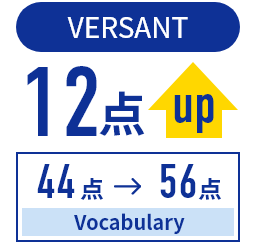
過去にオンライン英会話を受けていましたが、休むことも多く伸び悩んでいた中でGabby と出会いました。英文の瞬発力を鍛える毎日の自主トレと週一回のライブセッションでの発音矯正などの組み合わせで、以前より相手の言うことを理解し答えられるようになりました。
受講期間 : 3ヶ月

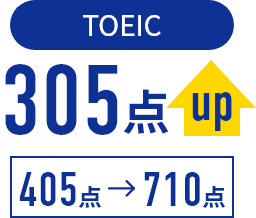
ギャビー受講前は英語の曲を聞いても何を言っているか全く分かりませんでしたが、今では 「こう言ってるな」 と聞き取れるので自分でも驚いています。継続できなかった英語試験勉強も、ギャビーを毎日継続し得点アップに繋がりました。
受講期間: 12ヶ月
こんな目標はありませんか?
英語で円滑な
コミュニケーション
を取りたい
海外赴任の
ポジションを
狙っている
海外に移住して
生活したい
海外企業と
対等に取引したい
事業の海外展開を
計画している

バンクーバー発のギャビーが
言語脳科学と最先端の
発音評価AIで
あなたの目標を
実現させます
※結果には個人差があります。効果を保証するものではございません。

活躍の機会が増える
外資系企業への就職や海外駐在ポジションの獲得など、グローバルに活躍できます。昇進・就職や転職にも有利です。

信頼が得られる
正確な英語が話せると、英語話者からの信頼獲得に繋がります。特にグローバルビジネスでは得られるチャンスが格段に広がります。

世界が広がる
世界共通言語である英語が話せれば、会話できる人の数も増えます。言語に縛られずにあなたの思いを共有することが可能です。
ギャビーと
他社英語サービスの違い
| ギャビー | 英語 コーチングA社 |
英会話教室 B社 |
オンライン 英会話C社 |
|
|---|---|---|---|---|
| 学習内容 |
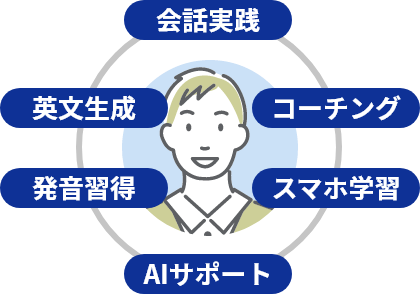
発話力+発音力を同時に |
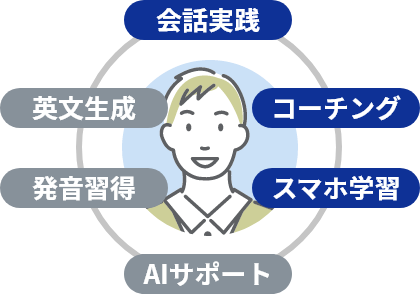
会話実践が中心で |
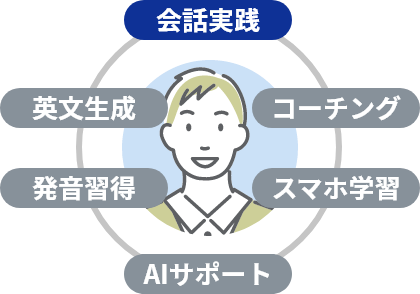
会話実践が中心で |
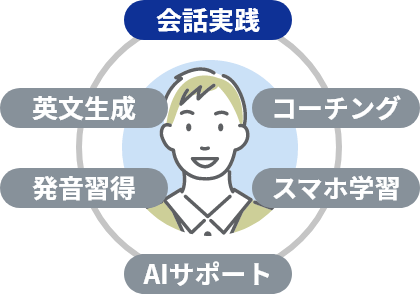
会話実践が中心で |
| コーチの質 |
完全担当制で |
完全担当制で |
担当なし |
担当なし |
| 国籍 |
英語ネイティブのみ |
英語ネイティブ ⁄ |
英語ネイティブ ⁄ |
非英語ネイティブ |
| サポート 体制 |
いつでもサポート |
いつでもサポート |
記載なし |
記載なし |
| 入会費 |
¥ 入会費なし |
¥¥¥ 入会費あり |
¥¥ 入会費あり |
¥ 入会費なし |
「英語を自分の言葉として身につける」を
確実に実現成果を最大化するための
仕組みとは?
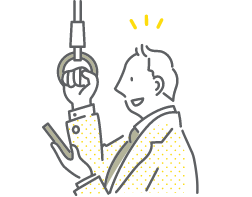
自主学習アプリ

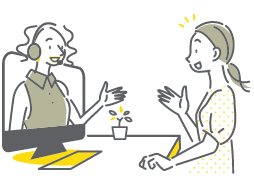
コーチング
毎日の継続をサポート
ギャビーは挫折させない!
学習習慣が無意識に身につく
Y.T.様 コンサルティングファーム(東証一部上場企業)勤務
コーチング利用の感想
私の担当コーチCindyは、いつも笑顔でしっかりサポートしてくれます。週一回のセッションは成果を確認できる貴重な時間で、具体的で分かりやすく説明してくれたり、質問に的確に答えてくれます。セッションのない日も応援メッセージをくれるので、モチベーションを保ってトレーニングできています。

N.O.様 移動体通信事業者 (東証一部上場企業) 勤務
アプリの感想
自主トレは、 何も準備しなくてもスマホだけでできるので助かっています。他の教材だと 「どれをしようかな」 「必要なものは何だったかな」と考えているうちに嫌になることが多いのですが、ギャビーはシンプルで使いやすく、 準備や選択に悩みません。

真の言語習得をサポート
「英語を自分のことばにする」を
最速で実現する
6つの仕組み
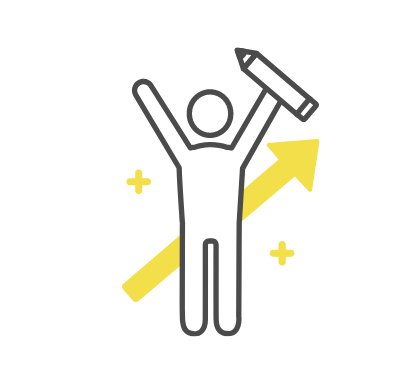
上達が実感できる
AIスピーキング
テスト

ネイティブ直伝
発音レッスン動画

コーチは
完全担当制

メッセージ機能で
コーチといつでも
やりとり可能
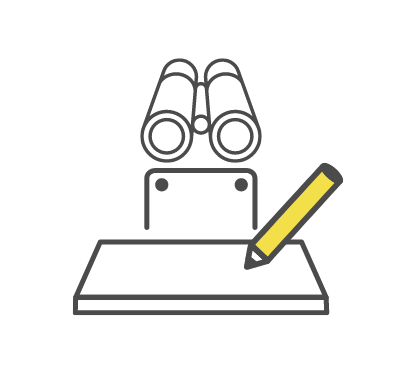
あなたの
日々の学習を
コーチが
モニタリング

個人の課題に沿った
自主トレメニューを
毎日提案
コース・料金
無料
メルマガ
ビジネス英語習得に関する情報を発信しています
お知らせ
- 2024.03.07【期間限定:英語速習コース】アプリのみのセルフラーニングコースを特別価格で提供
- 2023.03.09ギャビーのアプリに、英語スピーキング評価AI「CHIVOX®︎(チボックス)」の提供開始(2023年5月予定)
- 2023.03.09ギャビーアカデミーが東京大学との共同研究で開発〜世界初「脳科学的」英語スピーキングトレーニングの新カリキュラムが完成〜
- 2023.01.23獺祭を醸造する旭酒造は、ギャビーアカデミーの英語学習支援により、ニューヨーク酒造プロジェクトを成功へ。新製品「DASSAI BLUE」を⽶国展開へ
- 2022.08.168月26日 (金) 『英語発音習得ウェビナー ~ 誰もがネイティブのように発音できる!色と身体で覚える発音習得メソッドを大公開 ~ を開催します。
- 2022.07.147月22日 (金) 『英語発音習得無料ウェビナー ~誰もがネイティブの発音に近づく!色と身体で覚える、新・発音習得法を紹介~』を開催します。


















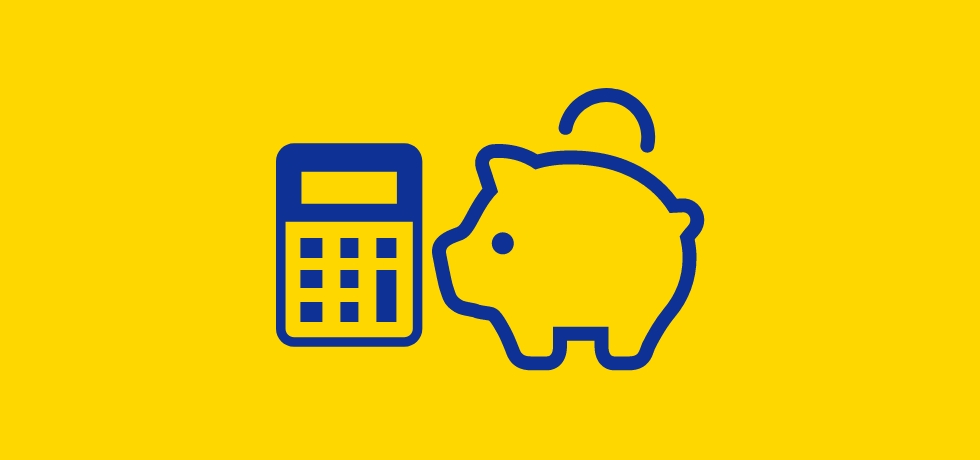
 【2024年4月開催 】 英語発音習得ウェビナー ~ 脱・カタカナ英語!伝わる発音を身につけるには?〜
【2024年4月開催 】 英語発音習得ウェビナー ~ 脱・カタカナ英語!伝わる発音を身につけるには?〜 異文化理解とは|海外就職で役立つ「異文化理解力」について分かりやすく解説
異文化理解とは|海外就職で役立つ「異文化理解力」について分かりやすく解説 人事異動の挨拶を英語メールでどう書く?新年度に使えるフレーズ18選
人事異動の挨拶を英語メールでどう書く?新年度に使えるフレーズ18選